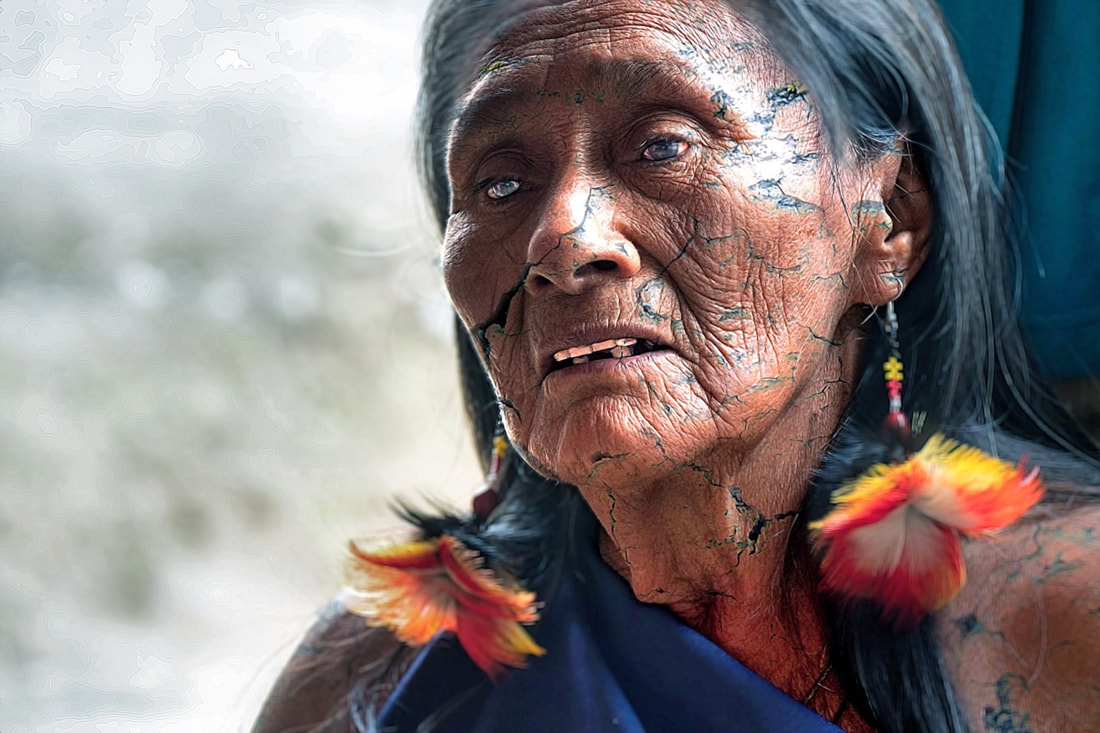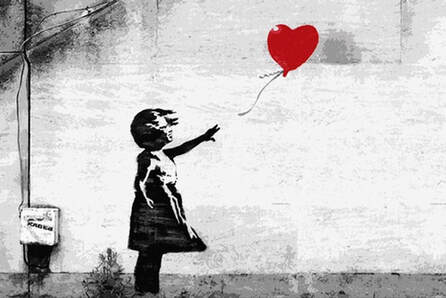|
‘Grief is not a disorder, a disease or a sign of weakness. It is an emotional, physical and spiritual necessity, the price you pay for love. The only cure for grief is to grieve.’ (Earl Grollman) Ambushed by grief. A graphic book title and a profound way to convey the experience of the experience. Grief can, at times, take us completely by surprise, impacting us suddenly and as if out of nowhere; leaving us breathless, broken and bleeding. My most traumatic grief experience was at age 18. I still re-experience it, like living in the vice-like grip of a terrible nightmare that stubbornly, agonisingly and tormentingly won’t let go. One of the best descriptions of grief I’ve ever read is a beautiful and painful personal expression of this phenomenon that, in the midst of such agonies, offers a picture of hope. It resonates with much of my own personal experience too. Only in more recent years have we begun to discover, perhaps to rediscover and to understand, the somatic dimensions and consequences of traumatic grief. The body certainly does keep the score. On Easter Saturday (a day that marks the existential time gap between Jesus’ death and his resurrection) this year, I visited a Christian community where one of its leaders shared a deeply evocative short video clip by Massive Attack. It captured and expressed feelings of denial, betrayal, pain, abandonment and death in such a way that left me stunned and speechless. We prayed for all who feel trapped in a perpetual state of dysthymia.
12 Comments
'The reality is that you will grieve forever. You will not 'get over' the loss of a loved one; you will learn to live with it.' (Kubler-Ross & Kessler) At 15, I was fatally wounded. At 18, I died. That’s how it felt and, at times, it still feels now. There are some scars that never heal. A trauma of unwelcomed loss is being forced, harshly, to let go of an imagined future, a hoped-for dream. This tearing experience can leave our hearts, our bodies, bleeding. I felt betrayed and shattered and spent day after day, year after year, pleading with God to take my life. I slid into a heavy, dark dysthemia. Nothing could bring healing, happiness or hope. It's fertile ground for addiction, to search for anything that will make us feel alive, provide even momentary relief. We may immerse ourselves in whatever distracts and enables us to avoid having to face again, all too wearily, those severe memories and tortured feelings. My own torment was that searing-painful images would surface over and over in my dreams, as if trying to reconcile the suffering at some deep subconscious level, yet leave me waking the next day in suicidal mood. I wish there was a simple answer, a miracle cure. I live in a culture that holds out delusional promises and expectations of a pain-free, pleasure-filled possibility of a life. I live in a world where hurt and damaged people, more and more, seek solace and escape in drugs or other diversions. I find my spiritual hope in Jesus who (to me surprisingly, yet in a strange way reassuringly) carries the scars of crucifixion after his resurrection. Whatever I may go through now, this will not end in death. Over the years I have learned, and am still learning, how to live with my own scars rather than to attempt to bury, hide or erase them. I’m still, at times, ambushed by grief. It takes me by surprise and leaves me temporarily reeling. I’ve learned to be thankful and, gradually, to allow people and relationships to drift away rather than to cling so hard. I’ve learned to discern how pain triggered from the past can reveal someone or something important that I’m not noticing here and now. How do you deal with your scars? How do you help others to do so too? (Nick is a change leadership consultant and trainer for trauma-informed practice agency, Rock Pool) As a young child, a Filipina living in the jungle threw a bucket down a deep well to collect water, but forgot to let go of it. She fell down the well, almost drowned and was rescued at the last minute by her father. He had happened to pass by and was surprised to see that both she and the bucket had vanished. A short while later, this same girl was climbing a guava tree to collect its fruit. Hanging upside-down with her feet around a branch, she parted the leaves and, to her horror, came face to face with a deadly cobra. This time, she did let go, fell and hit the ground hard. It saved her life. The principle here is to know when to let go. In English, we use to ‘let go’ metaphorically to mean to make a break with the past. It’s as if by letting go, we release ourselves psychologically to move on. (It’s sometimes used euphemistically to mean to make someone redundant – but that isn’t the way in which I’m using it here). It can also mean to relax our metaphorical grip in the present moment. In this sense, it’s the opposite of to grab, hold on tightly or seek to control. It’s about learning to relax, trust, flow and breathe – and, for me, to pray – then to see who or what emerges, new, into view. Are you holding onto, e.g. a person, home, job, role, income, plan, structure or way of doing things, that's stifling what’s truly possible? How easy do you find it to let go? How do you enable others to do so too? ‘I was so focused on what I had lost, that I lost sight of what I had found.’ (Jerry Orbos) Orbos, a priest, recounted a story of when, as a small child living in a very poor village, he attended a fiesta. It was a special, exciting party and he was thrilled to be given a balloon. Some moments later, he was given an ice cream too. He could hardly believe it. On taking the ice cream, however, he accidentally let go of the balloon which floated away out of reach. Looking up helplessly, Jerry felt completely distraught. His mother, noticing his distress, whispered, ‘Jerry – look at your ice cream’. A loss that impacts deeply can leave us feeling hurt, mesmerised, transfixed and paralysed. We may struggle to breathe, as if caught in a trance state and unable – or unwilling – to break free. We may notice this when a person loses, say, a relationship, job or home that really matters to them. ‘What do you need?’ offers valuable empathy and support. ‘What are you not-noticing?’ can help break the gaze; enabling someone to see people, relationships and resources that lay hidden in plain sight. How do you help people to let go of what is lost? How do you help them to see what they can’t see? I woke on the floor by the front door with blood on my head. I had no idea how I had got there or how long I had been laying in that position. I tried to lift myself up, weakly, and saw pieces of wood all around me. I was puzzled and confused, disorientated. It turns out I had fallen unconscious and fallen through a wooden table. I half-crawled, half-staggered, to a different room and collapsed.
This experience taught me vividly how suddenly and dramatically our circumstances can change. In this case, I had a contracted a severe infection and was rushed into hospital in an ambulance. In other situations, it could be e.g. a sudden loss of a relationship or a job, a loss of someone or something important to us. It can come out of nowhere, leaving us lost, shocked and reeling. There’s something about loss that can fundamentally challenge our sense of security and certainty, especially in wealthy nations where we cushion and insure ourselves against all kinds of pain and hardship. It can force us to face deep spiritual and existential questions that lay out of reach of simple ‘positive thinking’, e.g. who are we, why are we here, who and what really matters? So a reflection and challenge for leaders, OD, coaches and trainers. How far do we face and address profound life questions in our work? How far do we allow ourselves to stay on the surface, the superficial, without going deeper? How far are we willing to travel with people, if they want to, into spiritual and existential places? How well do we handle it if people pose such questions to us? It can be one of the most painful of human experiences, especially if compounded by rejection or betrayal. But why is loss so difficult, whether it be loss of a person, a relationship, a job, a home, our health? Thinking back, I remember vividly when I heard the news of Princess Diana’s death. I have never been a royalist and had no interest whatsoever in the UK royal family. Yet still, somehow, I felt an odd sense of grief, of bereavement, that made no rational sense to me at all. Susie Orbach, a psychotherapist and writer who applies psychodynamic insights to social and political phenomena, explained this well. Although I had no relationship with Diana, she had nevertheless been part of the backdrop, the fabric, of my life so that when she died, it felt like something of that fabric had been lost, torn away. The subconscious effect of this was amplified and intensified by the social, cultural effects of experiencing that loss alongside others. At another level, this feeling of loss also echoed deeply with previous losses in my life, e.g. when I moved home as a child, when I lost a precious relationship. These combined insights enabled me to understand that Diana’s death carried symbolic significance (some part of my life would never be the same again) and psychological resonance (echoes of previous experiences of loss). I’ve learned that these same dynamics are present when working with people, teams and organisations too. So, if you’re a leader leading change, an OD practitioner facilitating groups through transition, a coach enabling a person to move deeper and move forward: look out for loss – sometimes masked as resistance, sometimes as denial, sometimes as loss of energy and hope. You can’t always know or predict what change may represent symbolically or trigger psychologically. Be present, be patient and be willing to persevere until the person, the group, is able to see and feel light again. |
Nick WrightI'm a psychological coach, trainer and OD consultant. Curious to discover how can I help you? Get in touch! Like what you read? Simply enter your email address below to receive regular blog updates!
|








 RSS Feed
RSS Feed